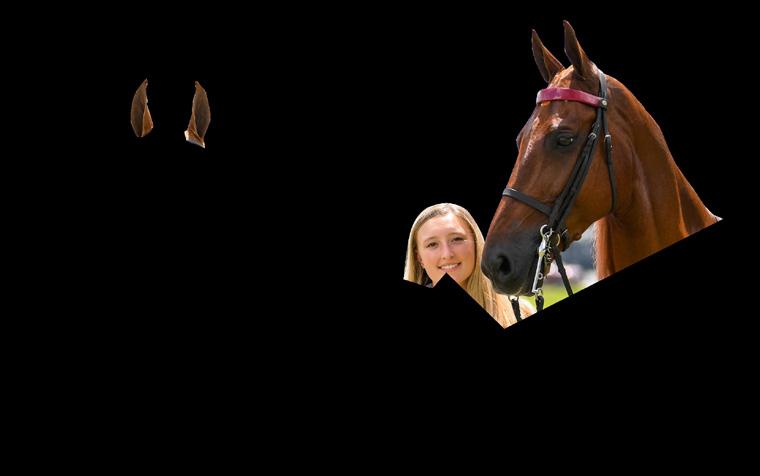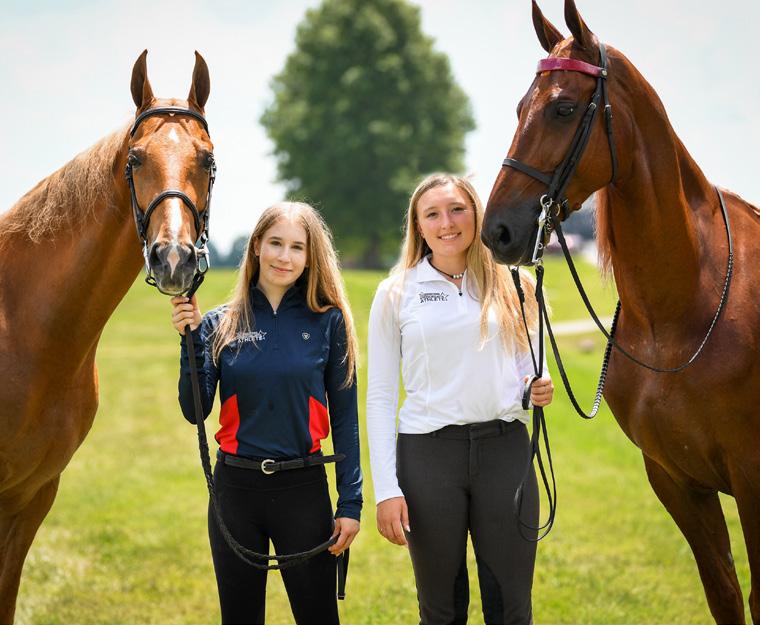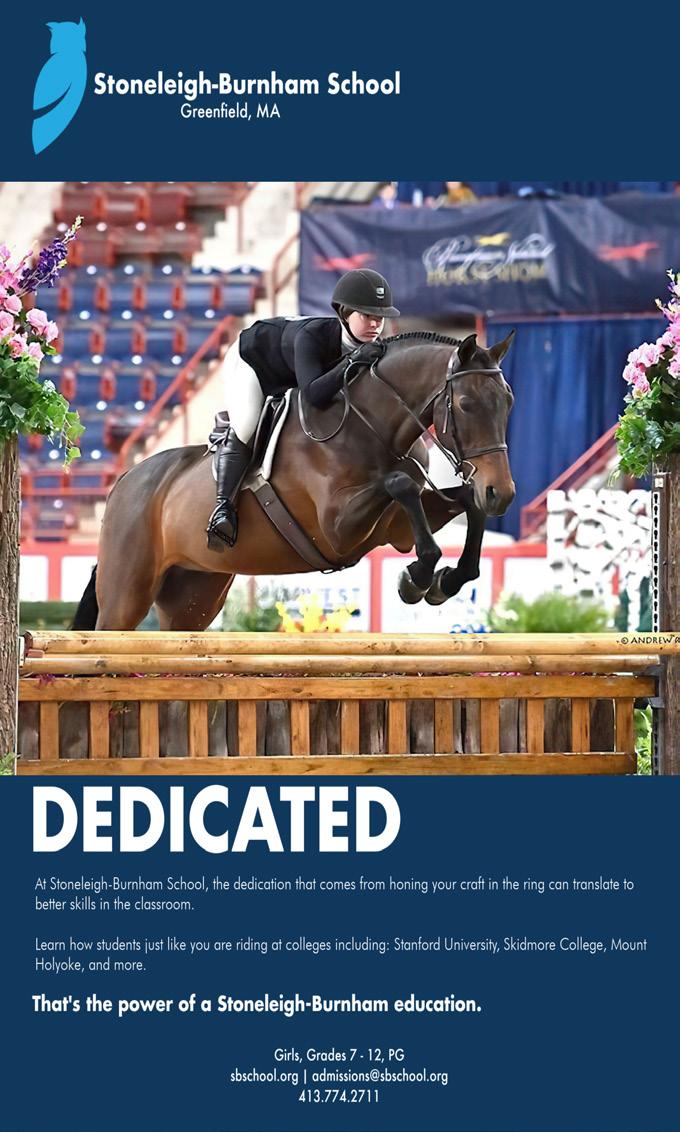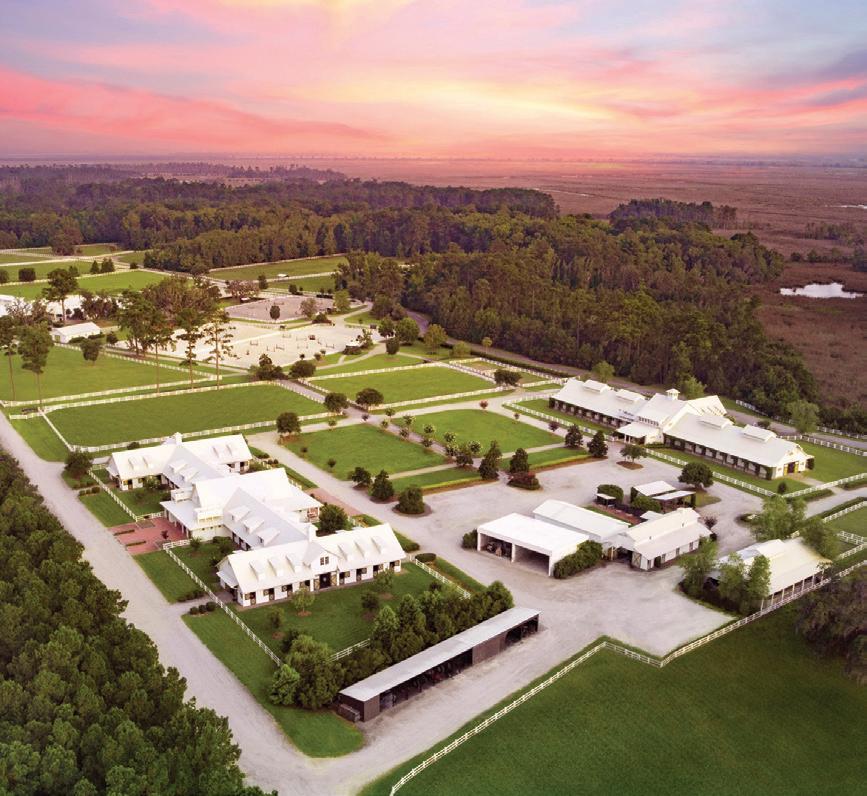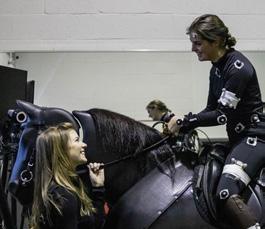


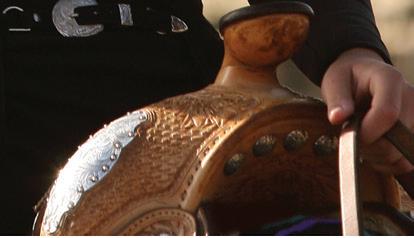
2024 US EQUESTRIAN COLLEGIATE HANDBOOK


Study the business of horses in one of the world’s only equine industry programs within an accredited college of business. Based in Kentucky, the heartland of America’s horse industry, our program provides students with essential business skills to help them succeed in the equine industry. Courses include equine management, finance, marketing, taxation, law, and more.
Learn more about our BSBA in Equine Business and Horse Racing Industry Business Graduate Certificate, and turn your love of horses into a great career.
EQUINE INDUSTRY PROGRAM APPLY TODAY! UofL.edu/Equine TAKE
THE LEAD ONAGREAT CAREER
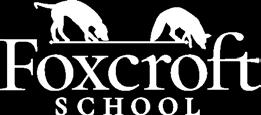
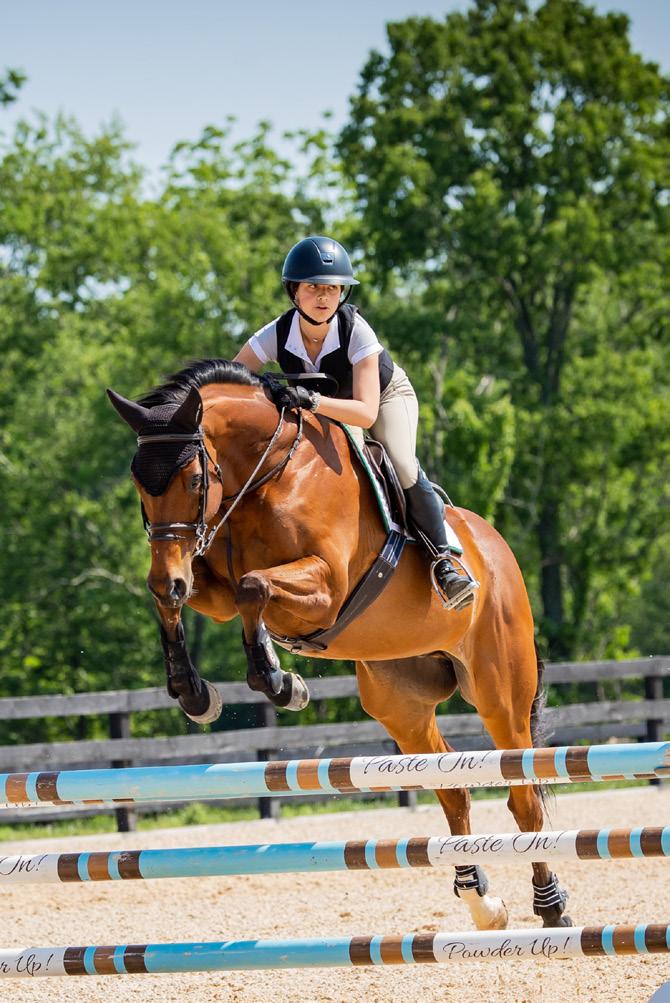

Collegiate Equestrian Handbook // 1
www.foxcroft.org | admission@foxcroft.org | 540.687.4340 22407 Foxhound Lane, Middleburg, VA 20117
boarding and
9-12 & post-grad Where Each Girl Can Pursue Her Passion for Riding Hunters • Jumpers • Equitation • IEA Team • Foxhunting
©Erin Gilmore Photography
A
day school for girls in grades



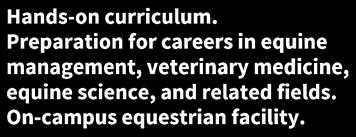
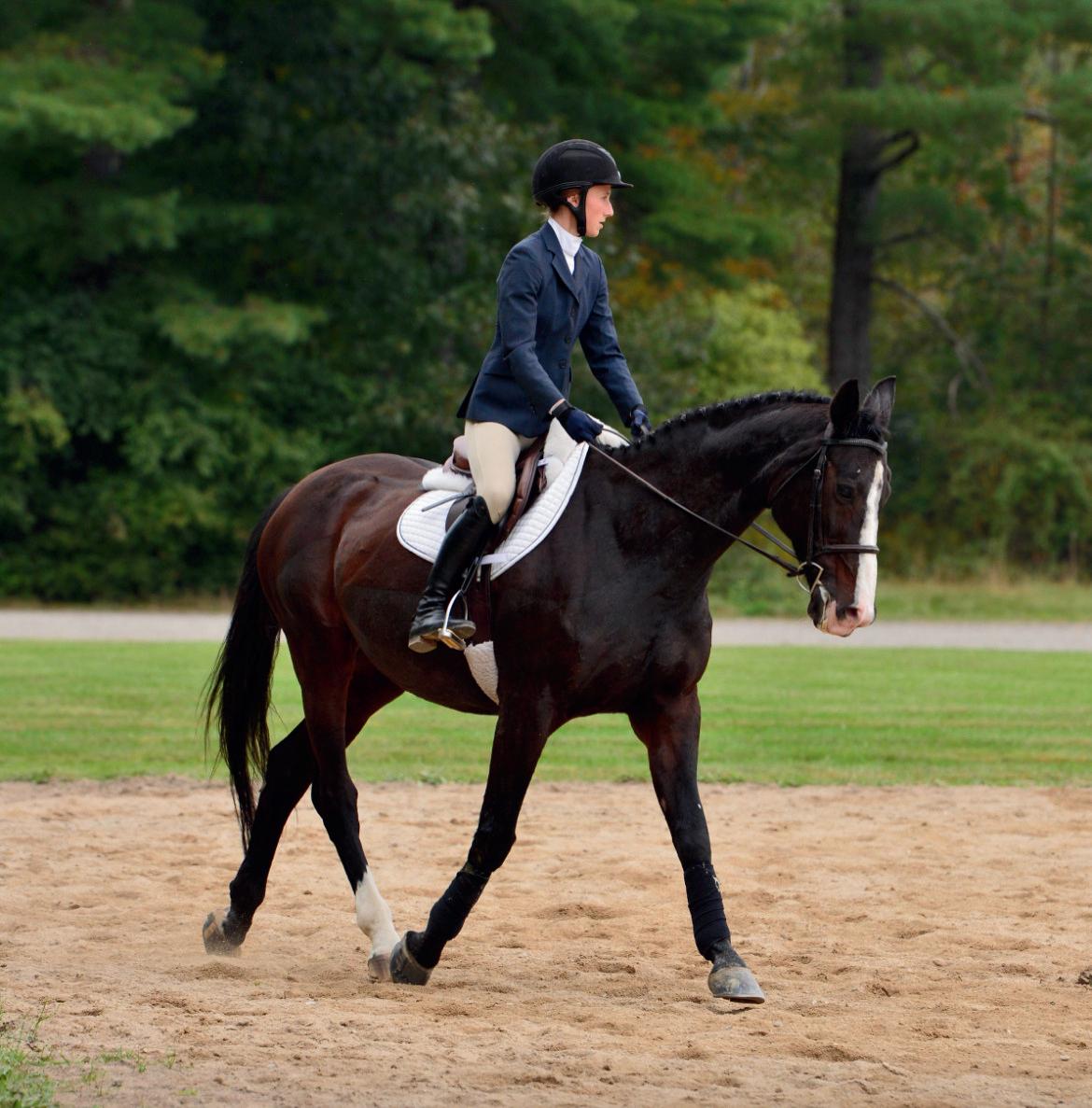
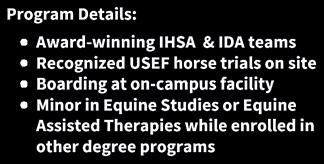

Follow us @UNHequineprogram
Delaware Valley University graduates have success in the real world because they have already been there. Employers appreciate the hands-on learning that defines a DelVal education. That is why 94.4% of our students from the Class of 2022 are employed, in service to our country, or in graduate school within one year of graduation.
Students who graduate from DelVal’s equine programs find success in the equine field and beyond. Nina Dellarte ’21 and Madison Lofgren ’22 are just two of the 25 DelVal graduates who have started veterinary school in the past two years. Many of our equine graduates are trainers, managers, breeders or riders, or work for companies that support the equine industry.
You see, we love horses too. In fact, we have had horses on our campus since we were founded in 1896 as the National Farm School.

Collegiate Equestrian Handbook // 3
Nina graduated from DelVal in 2021 with a B.S. in Animal Science (Pre-Veterinary) and minor in Equine Science. She is currently attending University of Pennsylvania School of Veterinary Medicine where she is president of the Class of 2025.
EXPERIENCE DELVAL. EXPERIENCE
700 East Butler Ave. | Doylestown, PA 18901 | delval.edu delval.edu/equine Equine Management • Assisted Therapies • Business Management • Instruction and Training • Media and Communication Equine Science • Breeding • Pre-Professional EQUINE DEGREES:
ELEVATES SUCCESS.
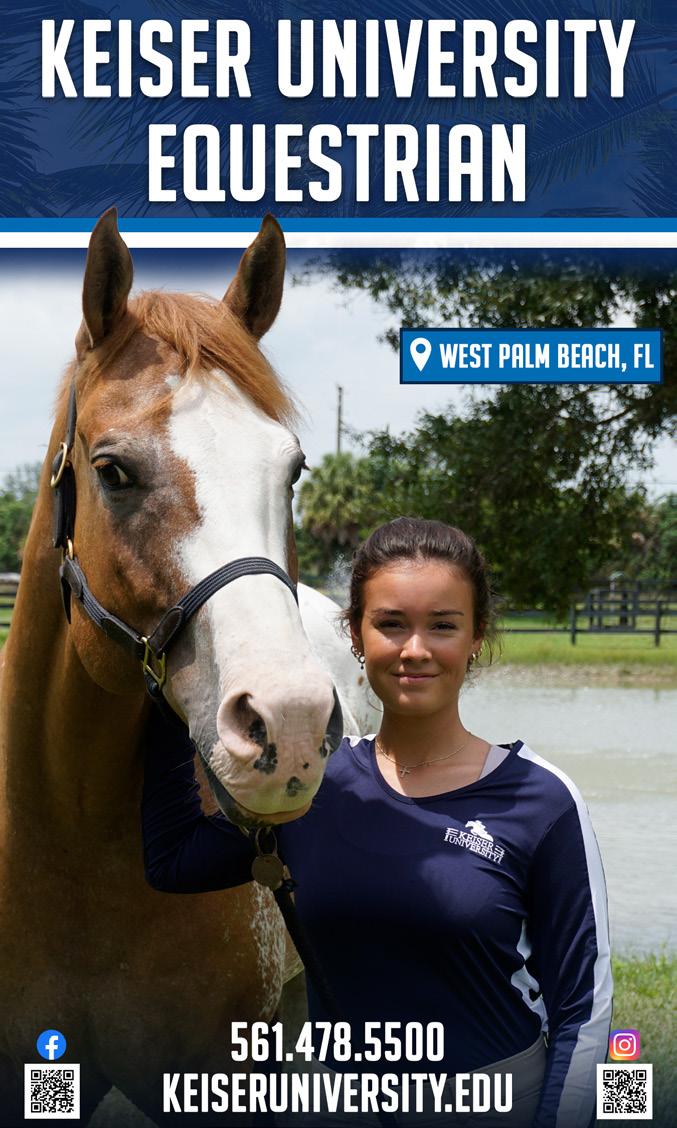
4 // Collegiate Equestrian Handbook
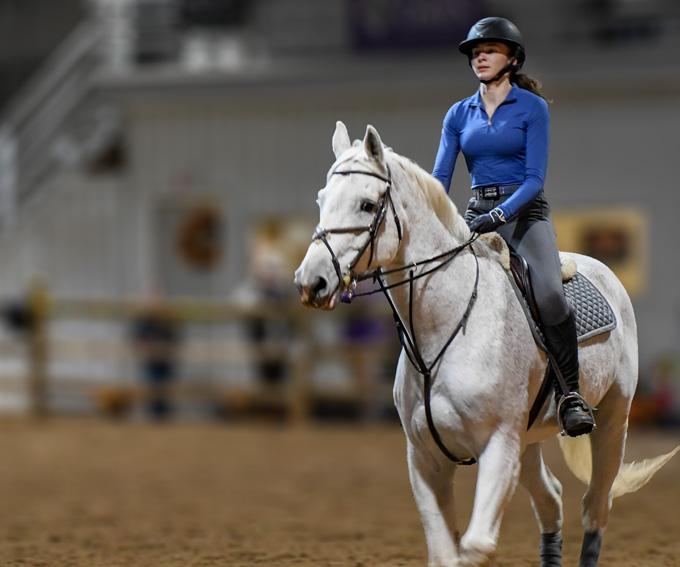
• Hunter/Jumper
• Show Jumping
• Eventing
• Dressage
• Showmanship
• Reining
• Ranch Riding With facilities that include:
• Indoor English Equestrian Center
• Indoor Western Arena
• 250x125 Show Indoor And more... Grier’s renowned equestrian program is designed to develop and build on strong foundations in classic hunt-seat equitation and western horsemanship skills. The full-time instructional and coaching staff, including a USEF R Hunter/Jumper carded judge and course designer, model what it means to be a successful rider and help each girl achieve her personal goals. For more information, please contact: klawler@grier.org
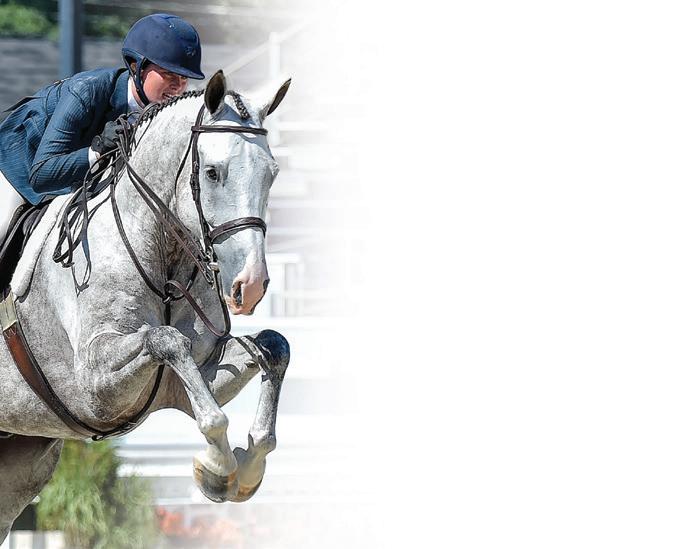
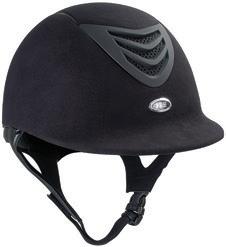
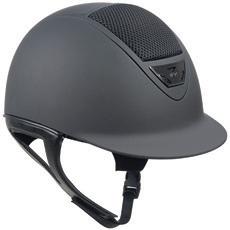
Collegiate Equestrian Handbook // 5
Equestrian
Grier
2522
P.O.
FAX: 814-684-2177
Visit our website www.IRHequestrian.com World Class STYLE and SAFETY at a price you’ll LOVE!
Grier School Rd.
Box 308 Tyrone, PA 16686-0308 WEB: www.grier.org INSTAGRAM: @grier_school FACEBOOK: www.facebook.com/GrierSchool PHONE: 814-684-3000
Equestrian Program

• World-class equestrian center
• Exceptional equestrian studies program
• National championship team Visit scad.edu or email admission@scad.edu
6 // Collegiate Equestrian Handbook
Art of Horsemanship
The
to learn
more.
TRAINING FOR TRANSITION
BY GLENYE OAKFORD
The transition from junior equestrian to collegiate team or adult competitor isn’t always easy. We spoke with equestrian mental coach Annette Paterakis about how juniors, parents, and trainers can help young riders take the next step.
The transition from junior competitor to collegiate or adult athlete can be challenging for some young equestrians, as equestrian mental coach Annette Paterakis knows first-hand.
Paterakis studied applied psychology and is a mental coach who works with equestrians; she participated in that capacity at the 2023 USEF Horsemastership Training Series. Paterakis was a successful young rider competing internationally in her early teens. But when she aged into open competition, she struggled— and the more her tension and confusion grew, the more her competition results suffered.
“Before, I was basically placed in the top three almost every weekend, and how wonderful that is for the ego. What came next was therefore more of a shock,” she explained. “Suddenly, I was surrounded by better horses and better riders, and sometimes also riders who were more experienced at that level. Suddenly, I was getting very different results than I used to, to the point that there were quite a lot of eliminations, because I wasn’t really ready to ride at that level yet. It was very challenging for me at that age, and I didn’t really accept that I wasn’t getting the results I want. I wanted to prove myself, and I got very upset when I made mistakes. I’m sure a lot of young riders relate to that. I got more and more in my head. I got more and more focused on proving myself and getting the results, and less and less focus on what actually made the difference.”
Part of the solution, Paterakis said, was to shift her focus to the process of learning and developing, and to see competition results as only a part of that process.
Collegiate Equestrian Handbook // 7 Collegiate Equestrian Handbook
“I saw failure in a very, very negative way and became afraid of making mistakes,” she said. “The moment that happens, it means you’re very attached to certain outcomes. When we’re attached to an outcome, nine out of 10 times, that means that we don’t get that outcome. It doesn’t work that way. We have to learn to let go of the results, so that we can focus on the process. But I didn’t know any of that at the time.”
We sat down with Paterakis to discuss strategies that young equestrians, their parents or guardians, and their trainers can employ to help juniors transition to intercollegiate or adult competition.
What are some of the common challenges junior equestrians face in making the change to intercollegiate or adult competition?
First of all, it’s important to understand that around that age, they’re also developing from a teenager into an adult. This transition does come with a few challenges, but it’s important to embrace them and see them as a beautiful growth process. This can be a challenging time for both athletes and trainers. For a junior rider, their role has been a child role, and the trainer is in a kind of parent role, telling them what to do: “This is how you want to approach the course, this is how many strides you want to do between these fences.”
It can be tricky when a child starts to have their own identity and their own ideas; it’s new and comes with different behaviors and communications that can be challenging for both sides. The important thing to realize is that becoming an adult also comes with responsibility. Thinking for yourself is a helpful skill; you should embrace it. It also comes with making mistakes. For some people, when they make a mistake, they return to the child role and say, “My trainer will just have to tell me what to do next” or become upset without really doing anything about it.
As a parent or coach, invite the child to rise into that adult position. Have an adult conversation. Ask questions. Encourage them. Instead of telling them how it went in the ring, ask them how they think it went. What did they think happened? How is their development going? What did they learn?
Another way is to encourage them to think for themselves. When they are about to walk a jumping course, maybe say,
8 // Collegiate Equestrian Handbook
“Hey, why don’t you look at it yourself first and come up with a plan. Then you walk me through it, and I can give you feedback. What do you think?”
In the ring, even if you have a solid plan, there are always moments when we need to make a decision for ourselves.
What mental strategies should juniors consider during this transition phase, in your view?
Know that when you bring yourself down because your results are not where you think they should be, thinking in that way can result in you being more focused on the results and less on what you actually have control over: the process. This is where taking responsibility comes in. If you wanted do better, you have to train better.
Don’t compare yourself to others. Compare yourself to who you were last week. Think, “What can I do better? What’s one thing that if I work on it, I would increase my statistics, my chance of going clear?” Then work on that with your trainer.
Just being critical or negative about yourself is unhelpful. What often does tend to work is analyzing and reflecting after a show—not every single day and not during your competition, because you need to be focused. But afterwards, reflect and look at whether there is a pattern that suggests an issue you can correct with training.
Comparing yourself to others can also play a role when you transition onto a college team. You can get distracted by the other students, the rest of the team, fitting in, and worrying that you’re going to let other people down. We can worry about all sorts of things when we transition into the very different dynamic of being a team rider. It’s important for these riders to refocus on what they can control. You can’t control your teammates. Instead, notice that you’re distracted and bring the focus back onto yourself and tuning in to your horse. Go back in your mind to your best ride ever and that feeling of being connected to your horse and present in the moment.
If you shrink because you’re worried, you’re not going to perform at your best. You want to step into that powerful you, that adult, that professional. You can’t be critical with yourself and drag yourself down internally. You have to manage your internal dialogue.
Collegiate Equestrian Handbook // 9 Collegiate Equestrian Handbook
As a young rider I was very critical of myself, and I wasn’t enjoying riding because I put too much pressure on myself and was too hard on myself. I see that in a lot of young people. A much better, productive, and even fun way to transition through that is to keep trusting yourself instead of constantly doubting yourself. If you look at any top rider going into the ring and performing at their best, they have this deep trust that even if they don’t know exactly what is coming at them, they trust that they’ll figure it out in that moment. We can do a lot of training at home. At the show, it’s about stepping into trusting that you’ve trained enough, you know enough, and you are enough.
For riders going on to ride with a team, how can they also add value as a teammate?
If you aren’t picked for the team for a show, think about how you will deal with that. Are you going to sit in a corner or show up to support the team? When you are riding on a team, get to know your teammates. You can ask them what they like, if they want feedback or information from your ride or if they would rather just focus on their own class or ride. Ask them, “Hey, what do you need from me?”
We are competitive beings, and we do get angry or frustrated, and that’s totally fine. We want to learn as adults to deal with that. It’s something you have to train: to refocus and put disappointment aside, because it’s distracting. Being an adult doesn’t mean you don’t feel emotions. On the contrary, you’re aware of those emotions, and then we take the next step and say, “Right now, my team needs me” or “Right now, I have a class to ride in” or whatever it is. That is something we can all train ourselves to do at home so it’s easier when we get to a show.
How does that contribute to improving performance?
You need to focus on what actually gets you there, which is being deliberate about your training. There are so many elements that play a role when it comes to becoming better as a rider. It’s not just about riding better horses, riding more horses, or working with the best trainer. It is a lot more about what you can actually control yourself, which is extremely exciting. There are no limits. The only limit we find is the limit in our own mind. If you keep taking the next step and you believe that it’s possible to improve, then you will keep improv-
10 // Collegiate Equestrian Handbook
ing. Personally, I think that’s incredibly exciting. When I was a teenager, this would have changed my world. But, at the time, I was fixated on being good enough, on proving that I was a good rider, and that became my focus instead of what actually made a difference. When we’re trying to feel validated or good enough, when we are comparing ourselves to others, it’s very distracting.
This kind of mental training takes place over time, doesn’t it?
I think it’s important that mental training should be a normal aspect of your development, not something you only do when you have a problem. It’s something that can help you avoid problems as part of your overall training as an equestrian. Just as you want to train yourself to avoid injury, you want to mentally train yourself to avoid being inconsistent. You can see mental training as a journey rather than as fixing a problem and then you’re done. If you go to a gym and work out for six months and then you stop going, you lose that fitness. It’s the same with your brain. You really need to use it or you lose it.
Investing in yourself this way has a lot of elements to it and is about more than just what you’re doing in the saddle in the show ring. That gives a lot of opportunity. So start somewhere, by reading a book or asking questions or by researching online or working with a mental coach to better yourself mentally, to learn about yourself and how your brain works. You’ll be training that muscle, too, to be prepared for the important moments.
Collegiate Equestrian Handbook // 11 Collegiate Equestrian Handbook
US EQUESTRIAN INTERSCHOLASTIC ATHLETE PROGRAM FOR RIDERS IN 5TH-12TH GRADE
You don’t have to be a record setting quarterback, point guard or track star to letter in junior high or high school sports anymore. US Equestrian is writing a new chapter in the recognition of student athletes – one that honors Equestrians.
The US Equestrian Interscholastic Athlete Program is open to equestrian athletes who participate in any breed or discipline. To earn letters, athletes should be a subscriber or competing member of US Equestrian.
Students may complete their requirements in two different ways based on either the number of hours spent in the saddle or the number of competitions he or she competes in during the year. The program year runs from June 1 - May 31 of the following year and honors those who document their involvement with an Interscholastic Athlete Varsity patch and corresponding pins. An Interscholastic Athlete patch and pin are awarded at the completion of your first year in the program. Each additional lettering year completed, you will receive an Interscholastic Athlete pin and award letter. Additional Lettering merchandise is also available for purchase with Shop USEF.
A student wishing to log his or her time needs to record a minimum of 100 hours of riding/driving/training.
A student wishing to use his or her competition experience must participate in at least three (3) competitions (both USEF licensed and/or non-USEF licensed) of any level or type to complete the requirements for that year.
Students may apply retroactively for previous years if they are still in grades 5-12 and can provide verification for each year.
As you look to build your resume and establish your professional portfolio, US Equestrian encourages student athletes
12 // Collegiate Equestrian Handbook
to include the number of Interscholastic years of achievement. It is important to highlight your dedication and commitment to the program by listing the number of years you were a lettering athlete. US Equestrian also provides athletes the option to send your current school a letter from our president, Tom O’Mara, showcasing your achievements.
View the full requirements and Frequently Asked Questions here:
usef.org/forms-pubs/2puL6-uiDiE/faqs-requirements
The US Equestrian Interscholastic Athlete Program is the first phase of an upcoming series of programs that will recognize achievement for time spent in the saddle for members of all ages. Learn more about the programs offered by US Equestrian and the benefits of membership at USEF.org.
Collegiate Equestrian Handbook // 13 Collegiate Equestrian Handbook
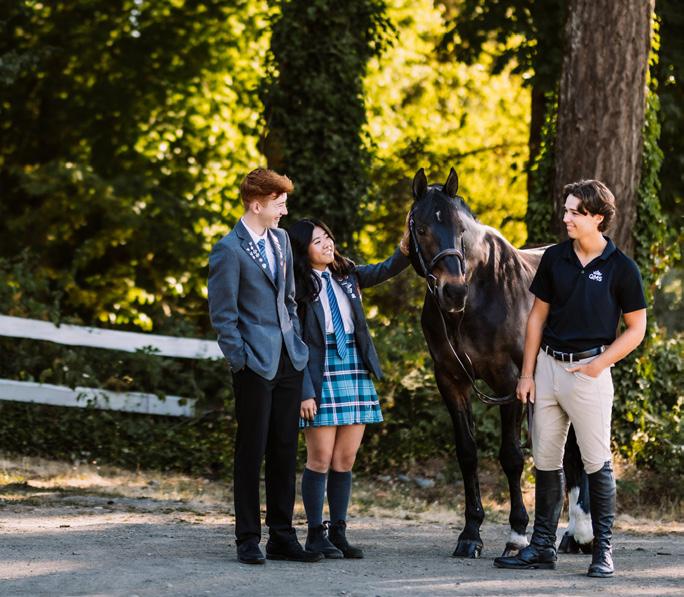
Be curious. Be kind. Be brave. Be you.

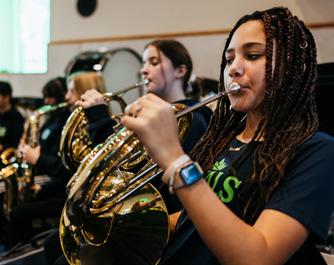



14 // Collegiate Equestrian Handbook
BOARDING & DAY HIGH SCHOOL Home of the Royals IEA Team
admissions@qms.bc.ca qms.bc.ca
Vancouver Island, BC, Canada
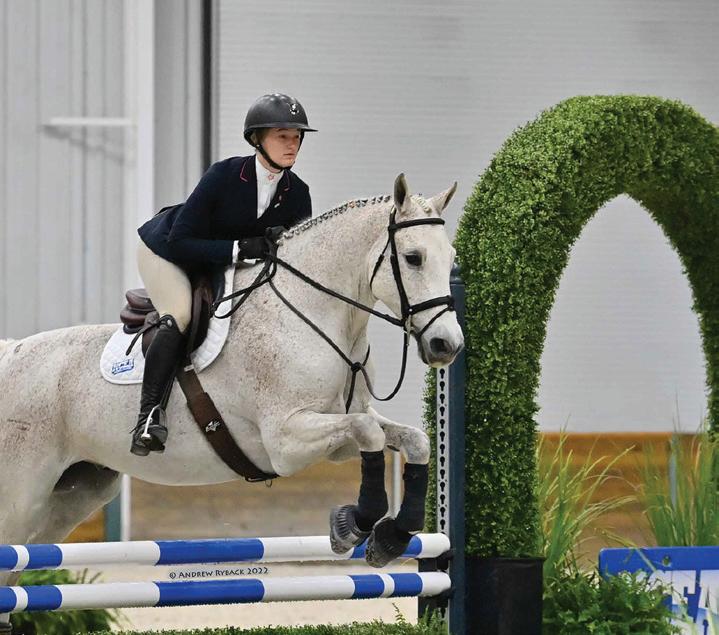
Excellent riders make exemplary leaders.
Earn an Equine Studies Certificate with a strong liberal arts and sciences foundation.
• Extensive on-campus facilities include a 130-acre riding center, a 120’ x 300’ indoor arena, boarding opportunities and newly renovated stables
• Hunter/Jumper riding program
• NCEA, IHSA and ODAC competitive teams and lessons for all levels
• 100+ years of equine excellence
Learn more at sbc.edu/riding.
Collegiate Equestrian Handbook // 15
Ride up to five days per week
Degrees in equine training and equine business
Renovated facilities including a 900-seat indoor show arena
Enjoy small classes with lots of one-on-one instruction Join the MCC IHSA and Open Show teams
Daily, hands-on work with horses
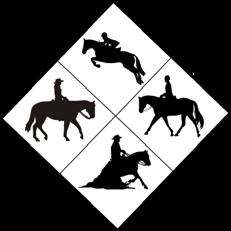
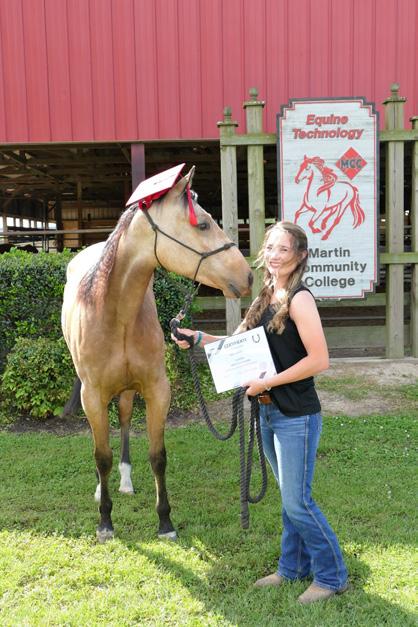


16 // Collegiate Equestrian Handbook Equine Business & Training Technology 1161 Kehukee Park Rd. Williamston,
252-792-1521 www.martincc.edu Tammie Thurston MCC’s Equine Technology Director Multiple Congress and World Champion tt78431@martincc.edu Check us out on MCC’s Equine Program Facebook page!
is
to an
that embraces diversity, respects
of
individuals, is open and accessi-
free of harassment and
Practical
equine
NC 27892
Martin Community College
committed
environment
the rights
all
ble, and is
discrimination.
and professional education in farm management, riding, training, breeding, nutrition, selection/judging and
health.
“We offer the same high quality equine education as a university or private college without the high price tag! ”
Faith Thompson (MCC’ s 2023 Distinguished Student ) with Loretta
RIDE. GROW. LEARN.
$195,000+ Given Back to USHJA Members in Grants & Scholarships in 2022!
We believe in giving back to our community–explore all the grants, scholarships and assistance funding available to you!
• $25,000 Hamel Family Scholarship for Further Education
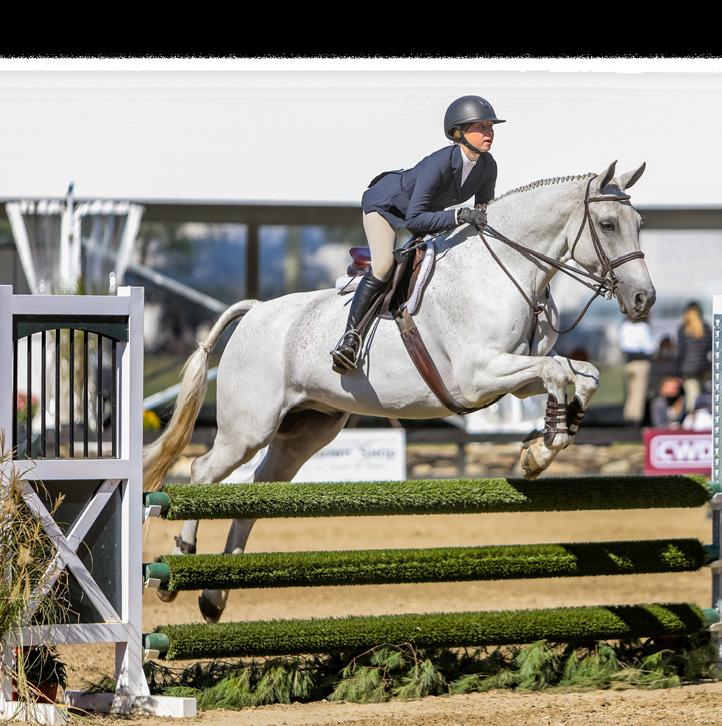
• Gochman Grant for USEF Pony Finals
• J.T. Tallon Memorial Equitation Grant
• MZ Farms/USHJA Emerging Athletes Program Grant by USHJA Zone
• College Scholarships available by USHJA Zone
Reach your goals with help from USHJA!
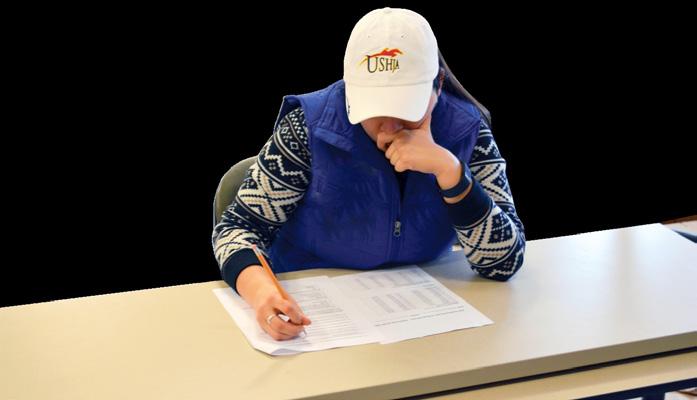
Collegiate Equestrian Handbook // 17
TERISÉ COLE & MEGAN LACEY/USHJA
USHJA.ORG
SCAN TO LEARN MORE!
COLLEGIATE RIDING PROGRAMS
USEA INTERCOLLEGIATE EVENTING
In 2014, the United States Eventing Association (USEA) Board of Governors approved the creation of the Intercollegiate Eventing Program as an official program of the USEA. Originally proposed with input from the Intercollegiate Eventing League, the program was established to provide a framework on which eventing teams and individual competition could flourish at universities and colleges across the country. Collegiate athletic programs have been the training grounds for Olympians, amateur athletes and professional athletes for generations. Enabling students to train in the Olympic sport of eventing is a natural addition.
Intercollegiate Team Challenges are quickly becoming popular additions to recognized horse trials in the United States. Teams competing in events identified as Intercollegiate Team Challenges are able to self-identify to the competition organizer, and will compete in the regular horse trial competition as individuals. Combining their individual scores, their team scores will be tabulated and matched against other teams.
The inaugural USEA Intercollegiate Championships were held in 2016 and continues to grow each year. The Intercollegiate Eventing Championships offers all USEF recognized and FEI equivalent levels and no qualification is necessary, however schools represented must be registered Affiliates of USEA and competitors must be enrolled as undergraduate students or have graduated no earlier than six months prior to the championship.
For more information about the USEA Intercollegiate Eventing Program please visit useventing.com/membership/intercollegiate.
NATIONAL COLLEGIATE EQUESTRIAN ASSOCIATION (NCAA Emerging Sport)
The National Collegiate Equestrian Association (NCEA), in concert with the mission and vision of the National Collegiate Athletic Association (NCAA), is committed to providing col-
18 // Collegiate Equestrian Handbook
legiate opportunities for female equestrian student-athletes to compete at the highest level, while embracing equity, diversity and promoting academic and competitive excellence. NCAA Equestrian student-athletes, coaches, and programs adhere to their respective NCAA Division rules and regulations. Currently 27 colleges and universities sponsor equestrian as an NCAA Emerging Sport for Women with more being added each year. More than 1,400 women are listed on NCAA team rosters across the United States.
The NCEA features a head-to-head team competition format for Dual Discipline Teams (Jumping Seat and Western) in four events: Jumping Seat Flat and Fences, Western Horsemanship and Reining. The NCEA features a head-to-head team competition format for Single Discipline Teams (Jumping Seat) in two events: Jumping Seat Flat and Fences Student-athletes from each team are matched to their mounts by random draw prior to each meet. Horses are designated by event to be ridden by each pair of opposing student-athletes competing head-to-head. The rider receiving the higher score from the judges earns a point for her team. The team with the most combined points from the events is the winner.
The NCEA National Championship is held in April each year. Qualification for this seeded bracket championship requires participation in a minimum of three NCEA regular season meets. The NCEA National Champion is determined by competition between the two teams that advance from the semifinal meets.
The NCEA promotes the advancement of NCAA Equestrian within college athletics and its guiding vision is to be recognized globally as the premier level of competition for elite female collegiate equestrian student-athletes.
For more information, please visit our website collegiateequestrian.com.
Collegiate Equestrian Handbook // 19 Collegiate Equestrian Handbook
US EQUESTRIAN COLLEGE SEARCH
The US Equestrian Higher Education Scholarship for Graduating High School Seniors will provide 5 $1,000 grants to high school seniors graduating in the Spring of the current competition year, who plans to continue his/her involvement in equestrian activities through an equestrian related degree or participation on a collegiate equestrian team. Applicants must be active members of US Equestrian. Essays and application forms must be submitted to the US Equestrian office before the deadline.
Visit usequestrian.org/youth for more information.
The search for the right college is considered one of the most exciting and potentially overwhelming times for young adults. With all of the information available and factors to consider, it can be especially difficult for young equestrians to narrow the search to schools that fit them best. Between academic courses and equestrian opportunities, the idea that you may not have come across your “perfect” school is a constant concern.
The US Equestrian College Search was created to make the process of finding a school easier for equestrian athletes. This online tool is designed to guide students in making an informed decision by matching them with colleges that meet their academic and equestrian goals. The Search provides a list of institutions that meet the criteria provided by the students. Students are then able to view the profile of each institution that meets their goals.
Visit the US Equestrian College Search at usequestrian.org/youth to find a school that matches your needs!
20 // Collegiate Equestrian Handbook
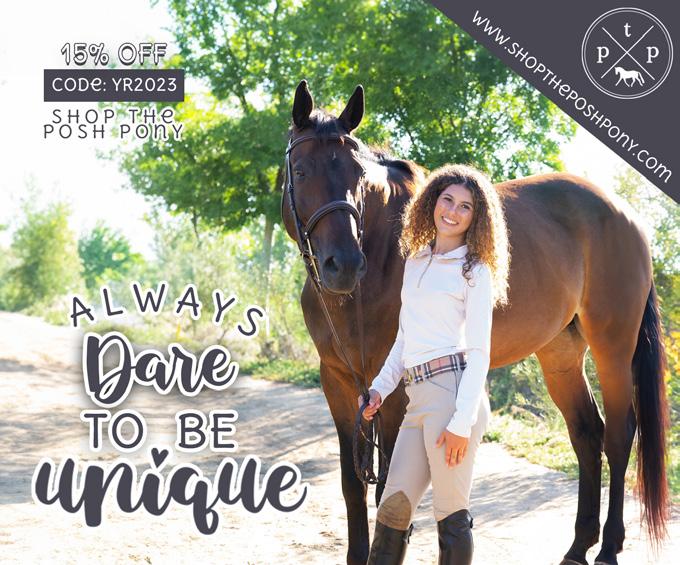
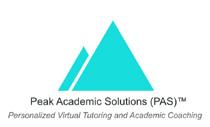
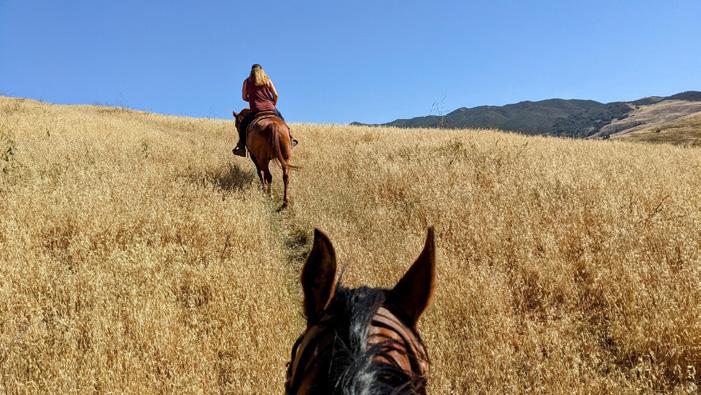
Collegiate Equestrian Handbook // 21 Online Tutoring for Student-athletes Proven Results 410.934.7567 www.PeakAcademicSolutions.com

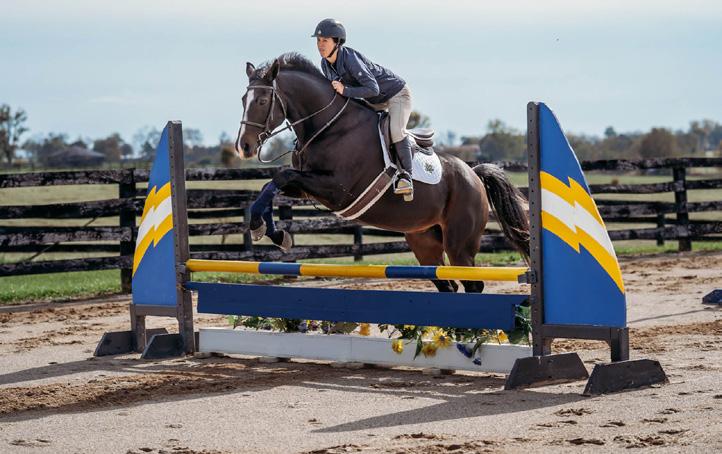
22 // Collegiate Equestrian Handbook GIVE YOUR PASSION A FUTURE. EQUINE STUDIES B.S. MBA Concentrations in: • Management • Rehabilitation • Science • 100% Online • Complete in 12–15 Months • 33-36 Credit Hours 800.952.4122 MIDWAY.EDU/EQUINE Hunt Seat and Western Competitive Teams 200 Acre Working Horse Farm
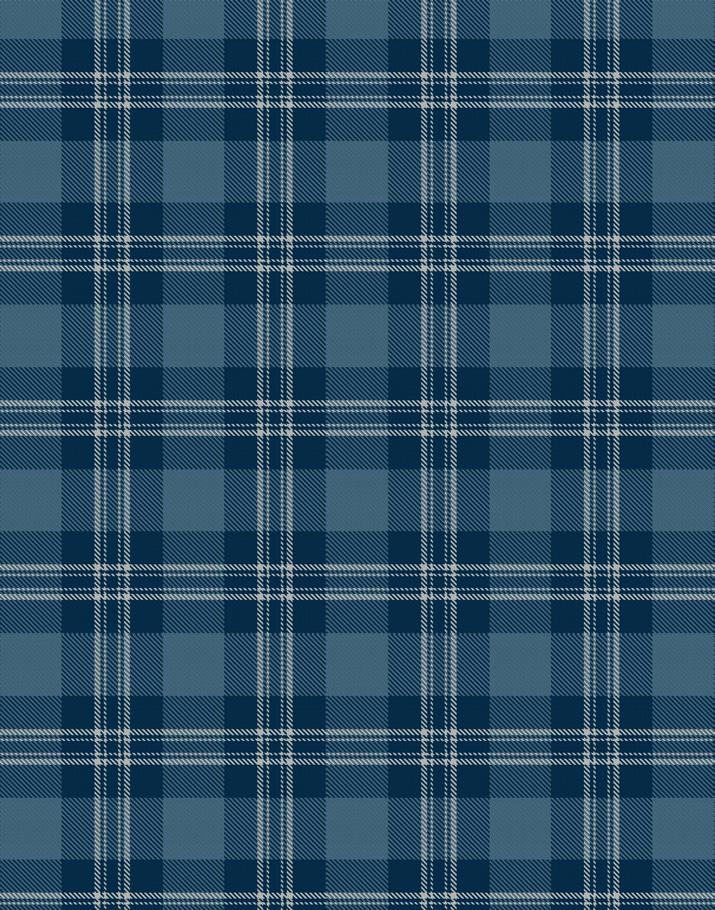
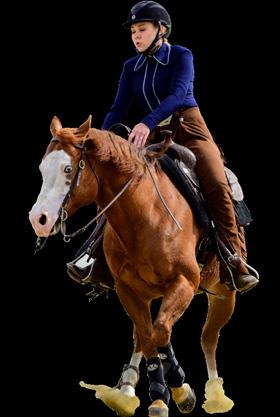


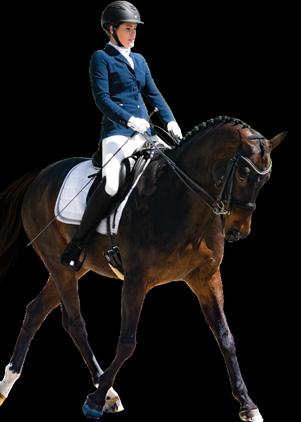
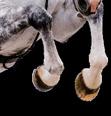
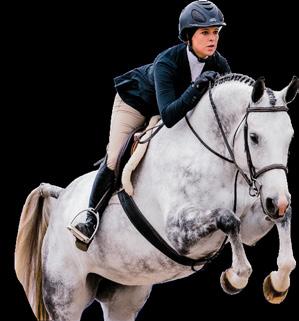







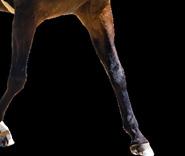
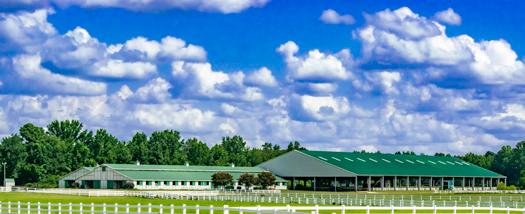
Collegiate Equestrian Handbook // 23 1700 Dogwood Mile Laurinburg, NC 28352 (910) 277-5555 www.sa.edu Intercollegiate Teams Hunter Seat Equitation Dressage Western Horsemanship & Reining Programs Include... Equine Business Management Equine Science Pre-Veterinary Therapeutic Horsemanship Therapeutic Horsemanship Business Management Equestrian Performance Scholarships Available! USEF Hunter/Jumper Show Team St. Andrews University A Branch of Webber International University 300acre Equestrian Center + 100school-owned horses +








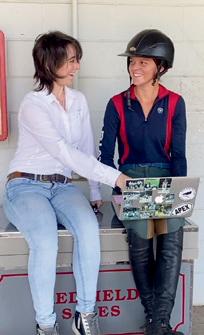
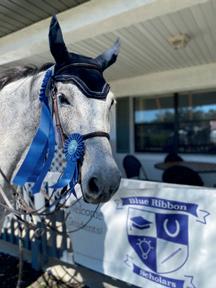


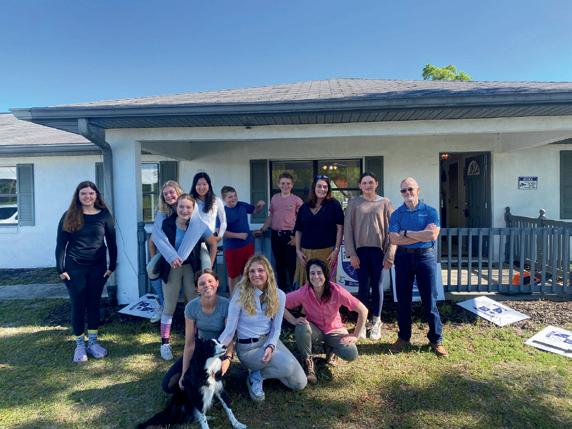
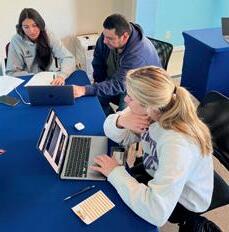
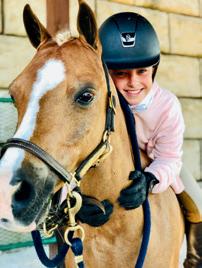
24 // Collegiate Equestrian Handbook (4 4 3) 2 5 7 - 9 5 4 9 info@blueribbonscholars.com www.blueribbonscholars.com Available on-site for all HITS Ocala Post Time Farm Horse Show Dates! Now Accepting New Students! Learning is fun You are supported You will succeed! Available in Ocala & Online! At Blue Ribbon Scholars... RIDING & COMPETITION TRAINING IN ALL FOUR DISCIPLINES williamwoods.edu/EQS 573-592-4221 | admissions@williamwoods.edu On-campus equestrian center State-of-the-art Center for Equine Medicine Riding opportunities for all majors Master’s program in Equestrian Education Pre-vet Biology program Equestrian Studies bachelor’s degrees
STUDY & RIDE
Intermont Equestrian
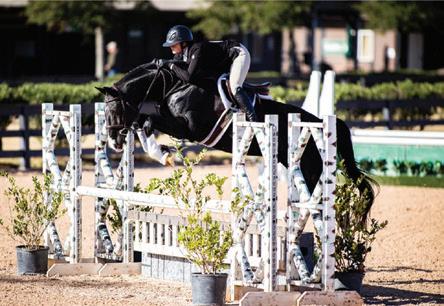
Equine Studies: B.A., B.S. or Minor
Equine Assisted Therapy: B.A.
Animal Science Minor
• More than 90 Majors & Tracks
Pre-Professional: Pre-Vet
• Boarding Available
Competitive Riding Teams: ANRC, IDA, IHSA
Hunters • Jumpers • Dressage • Riding Scholarships
www.ehc.edu/saddleup
• 800.848.5493
• admission@ehc.edu

Collegiate Equestrian Handbook // 25 Collegiate Equestrian Handbook
SCHEDULE A VISIT
22 NATIONAL CHAMPIONSHIPS
Competitive equestrian team (eventing, hunter/jumper, and IHSA/IDA)
Unique practical experiences in Veterinary Science
Highly-marketable degree in Equine Veterinary Technology
Intensive horse-centered Equine Business Management
Equestrian scholarships available
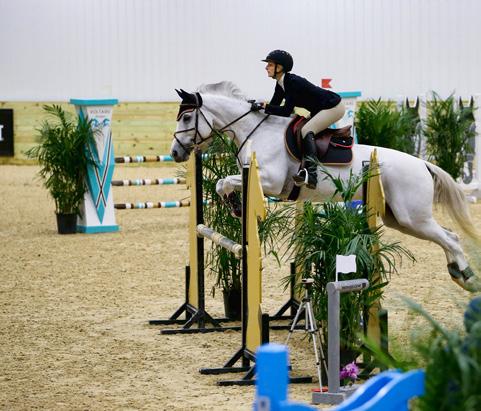
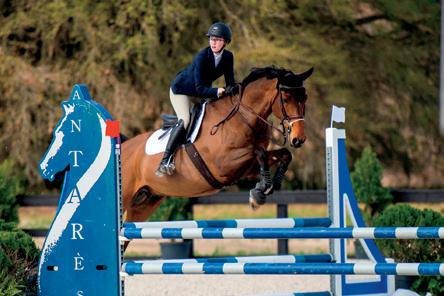

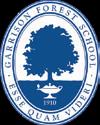
For more than 100 years, Garrison Forest School riders have been learning self-confidence, improving their skills, having fun and making friends through our nationally recognized equestrian programs.

26 // Collegiate Equestrian Handbook Ride. Study. Compete. Excel. (614) 823-3020 otterbein.edu/equine equine science. WE ARE
The Austin E. Knowlton Center for Equine Science Westerville, OH Garrison Forest School Equestrian Institute V i s i t u s a t : gfs.org/riding
GIRLS’ DAY, K-12 / COED PRESCHOOL GIRLS’ NATIONAL & INTERNATIONAL BOARDING, GRADES 8-12 300 Garrison Forest Road, Owings Mills, MD 21117
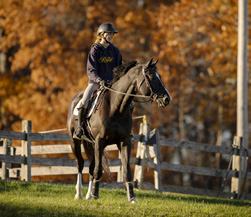

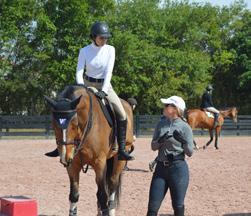
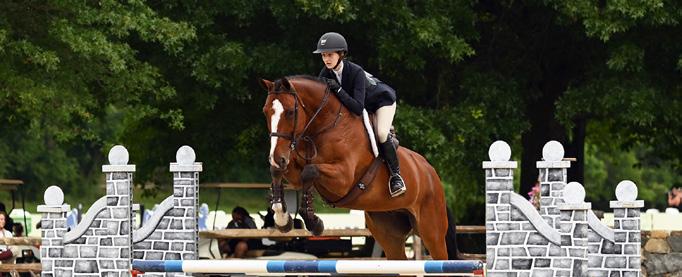
Collegiate Equestrian Handbook // 27 Ride with us. And join a legacy, more than 100 years in the making. Ours is a story of excellence, dedication and national success. The Mount Holyoke College Riding Program and Equestrian Center have been home to over a century of collegiate riding! Come make history with us and enjoy: • National Championship Intercollegiate Teams: Hunter Seat, Dressage, & Western • Exceptional, multidisciplinary instructional staff • Leading edge boarding management with care from experienced, permanent staff • Modern facility with two indoor arenas, 200x200 outdoor arena, cross country course, paddocks, & miles of trails • Horse donations gladly considered 413-538-2023 | mtholyoke.edu @MHCEQ Mount Holyoke Equestrian Center @mhcdressage @mhcwestern All Girls · Day and Boarding · Grades 6-12 · Simsbury, CT On-Campus Facility · Award-Winning Trainers · Newly Renovated Show Ring www.ethelwalker.org
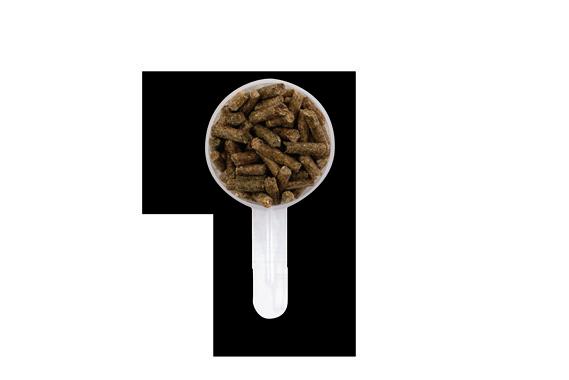


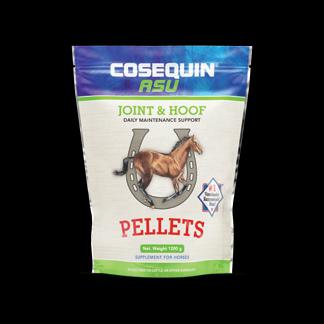




28 // Collegiate Equestrian Handbook OUR PELLETS STAND OUT SO YOUR HORSE CAN STAND OUT! Cosequin® ASU Joint & Hoof Pellets contain quality ingredients to support joint and hoof health and leave out the fillers molasses and alfalfa — all while delivering the taste horses love. The colors of our ingredients shine through, for a difference you can see. COSEQUINEQUINE.COM ▼Source: Survey conducted among equine veterinarians who recommended oral joint health supplements. Pellets not actual size. Color may vary. 010.1416.00
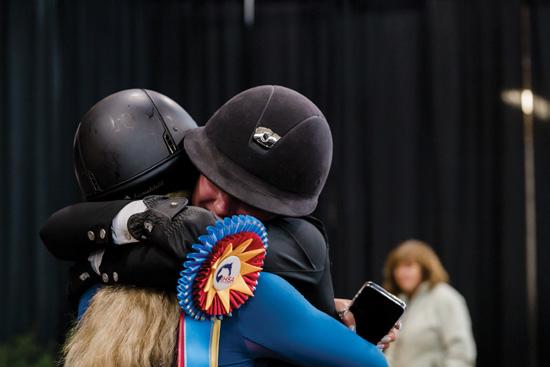
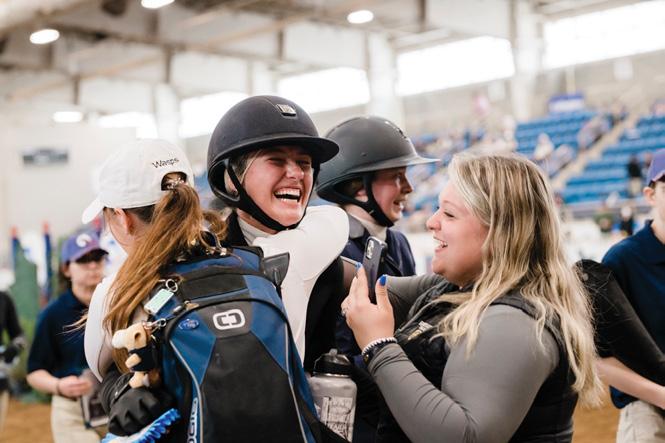

Collegiate Equestrian Handbook // 29
GRADES 5 - 12
DAY & BOARDING SCHOOL
International Baccalaureate WORLD SCHOOL
NATIONALLY RECOGNIZED equestrian PROGRAM
100+ ACRE CAMPUS
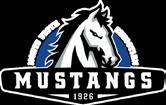
E q u e s t r i a n a t M o n t e V i s t a C h r i s t i a n o f f e r s a u n i q u e o p p o r t u n i t y f o r s t u d e n t s t o d e v e l o p s k i l l s a n d a c h i e v e t h e i r e q u e s t r i a n g o a l s .
O u r o n - c a m p u s E q u e s t r i a n C e n t e r h a s t w o o u t d o o r c o m p e t i t i o n a r e n a s , a 3 5s t a l l b a r n , a h o r s e w a l k e r , a n d n e w l y r e n o v a t e d t r a i l s t h a t w i n d t h r o u g h t h e 1 0 0 - a c r e , w o o d e d c a m p u s .
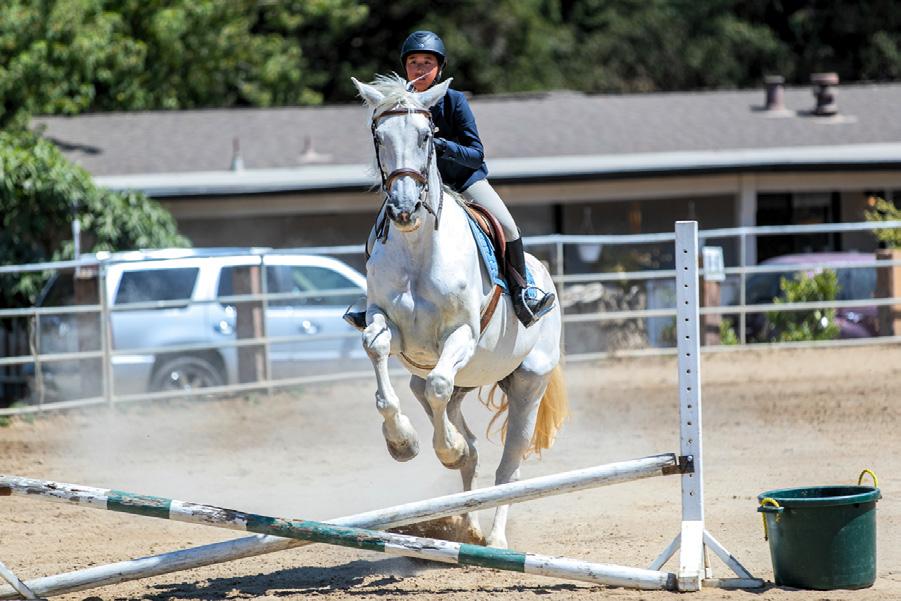


30 // Collegiate Equestrian Handbook
2 S C H O O L W A Y | W A T S O N V I L L E C A 9 5 0 7 6 8 3 1 - 7 2 2 - 8 1 7 8 | M V C S O R G
e a r n m o r e
MONTE VISTA CHRISTIAN school l
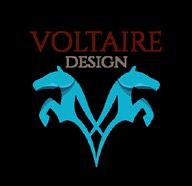
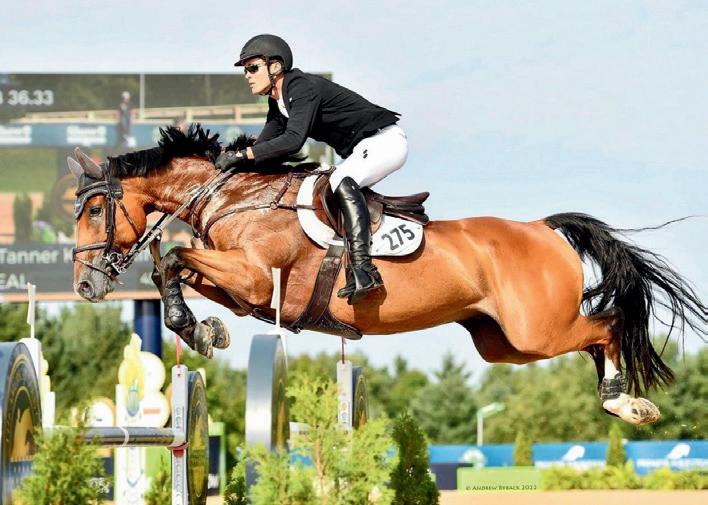
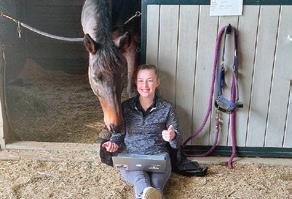
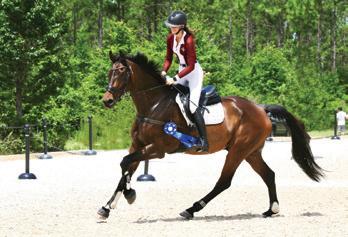
Collegiate Equestrian Handbook // 31
@VoltaireDesignUSA_CAN
@VoltaireDesign
@VoltaireDesign VoltaireDesign.com/US
Tanner Korotkin
At USPA, School goes where you go! Get the Academic Edge We are the online school for Elite Athletes gouspa.org @ usperformanceacademy
Andrew Ryback Photography
Devon Tresan USPA Student Athlete, Class of 2024
Keen Davies USPA Student Athlete, Class of 2024






















































































